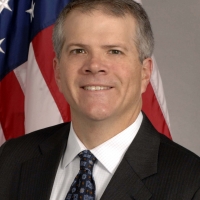Dec092016
Posted at 9:55 AM
Post by Bruce H. Andrews
Today we recognize International Anti-Corruption Day, December 9, 2016. As Deputy Secretary of Commerce, part of my job has been to level the playing field and improve the operating environment for American companies and workers competing internationally. I know from my discussions with U.S. enterprises of all sizes that corruption and unethical behavior in international business are serious and longstanding trade barriers. Corruption stymies U.S. exports and hurts the ability of American companies and workers to compete around the world. Whenever we can improve the business climate and open new markets for American products and services, our companies grow, and our workers and families are better off. But corruption doesn’t just harm our companies and affect our economy--it hurts other national interests by impairing economic development and by undermining the rule of law and democracies worldwide. While we have made significant progress in working with like-minded countries to address the scourge of corruption, more work remains to be done.
One key area where we can make further progress is in combating bribery in international business. In March, the United States and more than 50 other countries met at the Organization for Economic Cooperation and Development in Paris to discuss next steps in the fight against foreign bribery and corruption. The countries that are members of the OECD Working Group on Bribery, which monitors the implementation of the Antibribery Convention, reaffirmed their commitment to strong enforcement of their foreign bribery laws and formally launched a new and more targeted phase of country evaluations. As a result of our work in the Working Group on Bribery, more countries have adopted corporate liability so that they can punish their companies for economic crimes such as foreign bribery, more countries are actually bringing foreign bribery cases, and international cooperation in investigating foreign bribery cases is a growing trend. However, enforcement is still lacking in others, which is why continuing the monitoring mechanism of the Working Group on Bribery in order to level the playing field is so important.
We are also working to prevent unethical behavior that results in corruption. We continue to expand our work to strengthen ethical business practices in the Asia Pacific Economic Cooperation (APEC) Forum. For example, one of our top priorities has been combating unethical behavior that disadvantages small-and-medium-sized enterprises in APEC markets. We lead the Business Ethics for APEC SMEs Initiative, which promotes the development and implementation of national codes of business ethics for several sectors across the Asia Pacific and the Americas. One of our greatest success stories to date is having a significant positive impact for American health companies and workers, where medical device and biopharmaceutical industry associations across 10 APEC economies have adopted medical device codes that expand the highest ethical standards to a total of 19,000 firms across the region. This initiative serves as a model in U.S. economic diplomacy, concurrently leveling the playing field for American businesses and workers while eliminating root causes to corruption overseas. We are also encouraging companies to put in place robust anticorruption corporate compliance programs to train their workers and prevent bribery. In August, we organized an APEC workshop hosted by the United States and Peru, where more than 100 experts and business representatives shared information and best practices on the elements of effective antibribery corporate compliance programs and incentives for such programs. We also continue to work with our interagency partners on anticorruption initiatives in the United Nations and the G-20.
We have also made commercial diplomacy, particularly in developing markets, a key priority. Our Commercial Law Development Program works in developing countries to provide expert advice on commercial law reforms, including anti-corruption. Most recently, CLDP has led initiatives in Ukraine where it focuses on government ethics, transparency, and corporate compliance, as well as public procurement reform and trade facilitation programs.
Combating international corruption is crucial if American enterprises and workers are to succeed in exporting U.S. goods and services and strengthening sales opportunities to the seven billion consumers that live outside the United States, creating jobs here in America. It has been an honor to be part of this important work with other countries, businesses, and civil society, to create an international marketplace where our companies and workers can compete and win without fear of corruption.




